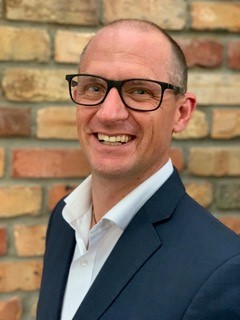2023 | Volume 24 | Issue 2
Resilience of staff and systems are interlinked

Author: Associate Professor Andrew MacCormick
Aotearoa New Zealand is reeling from extreme weather events that have seen loss of life and destruction of property and livelihoods. These scenes have been very distressing.
What has been heartening is that many of our healthcare colleagues who have gone to extraordinary lengths to meet their communities’ needs.
It made me think about resilience as I have often heard that word used to describe the communities devastated around Aotearoa New Zealand. It is also a term used a lot in relation to the healthcare system.
On the notice board outside our theatres there are posters documenting six factors underlying personal resilience and wellbeing:
• Body – be active
• Mind – keep learning, new experiences, see opportunities
• Spirit – generosity of time, words, presence
• Planet – care
• Place – awareness of the simple things that give you joy
• People – care
However, resilience not only applies to the individuals and communities in which we live and serve, but also to the systems with which we engage (healthcare, food, environmental, economic). I strongly believe we cannot keep asking individuals to be more resilient, and then more resilient again, as seems to be asked of healthcare workers so often.
We also need to build resilient systems to support them. Resilient people in a system that does not support healthcare workers is setting them up to fail—no matter how resilient they are. The focus on efficiency in the health system can sometimes work against the resilience of staff. We need to hold the two, people and systems, in ‘symbiotic tension’.
Curiously, a recent review of the volume of acute work at an Aotearoa New Zealand health institution contradicted the anecdotal perception that ‘we were busier than ever’. Is it that the cases are more complex or is it just that teams’ level of resilience has been diminished or undermined?
Healthcare has been described as a complex system. The definition of a complex system comes from Dave Snowden and his work on the Cynefin framework for decision making. Cynefin is Welsh for place and is similar in meaning to tūrangawaewae. We need to understand our place and ensure that it works for patients and for the healthcare workers who serve them. This includes the need for adequate flexibility and adaptability within the system. We must ensure that we do not replicate the same policies and procedures just for the sake of presumed ‘efficiency’.

The seemingly unrelenting call to do more with less may not produce the desired outcomes for patients or staff. To rebuild staff morale in a stressed and compromised system is difficult. Sometimes a different way of doing things may be needed to get the same outcome depending on the place. This is where we, as surgeons, may be able to provide leadership in a way that will influence the future of healthcare in Aotearoa New Zealand for the better.

